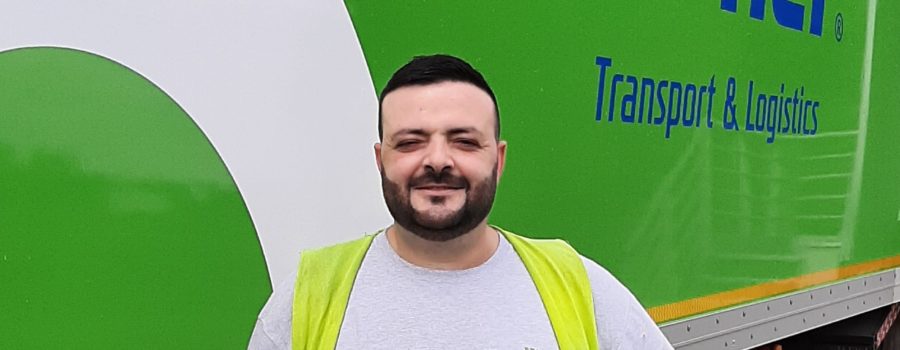
JEAN-BRIEUC CADIOU / HGV DRIVER

Why did you join Heppner?
I was in a process of occupational reintegration. There wasn’t really any field that I was interested in and I had been unemployed for quite a long time. Heppner launched a project in 6 or 8 towns to recruit drivers, which included paying for their training. It was an opportunity for me to try something new. They paid for my training, the licence, and they gave me a fixed-term contract, which has been replaced very recently by a permanent contract. The training lasted a full month. I first did a period on the road with a driver to see what it was like in the field, followed by a course that taught me the general requirements for working as a heavy goods driver.
Although Heppner is a large group, the local agencies, like here at Brest, are still small enough to feel that you matter. There’s a family atmosphere which is quite nice. Even so, the job is pretty tough, so working in a close-knit team helps make everyday life easier.
What did you like about the training course?
It is a funded training course with a job at the end. So work is guaranteed, which isn’t always the case! I also get on very well with the agency manager. By presenting Heppner under an interesting light, he made it appealing to me. And that made me want to stay within the group. Many drivers, once they’ve got their HGV license, look elsewhere.
What are the challenges of this job? What is a typical day like?
It’s a fairly interesting job because we’re able to decide how we do our work. Once we’ve learned what the job involves, it’s up to us to manage our delivery schedules. My days are rarely the same; it’s the same work but never the same day. Even though there are customers that we deliver to every day, it’s still a job where we have to deal with the hazards of the road; there are always surprises!
I check in between 8 and 9 am to find and load my parcels. That takes between 45 minutes and 1 hour. The trucking manager plans our routes but we give him feedback about customer contingencies (holidays, absences, etc.). So we have a say in how our day is organised; we work well together. There are drivers who are out all day. They don’t come back at midday because they cover a large area. As I work half-days, I travel shorter distances and I come back at lunchtime to load the goods.
What skills are needed to be an HGV driver?
You have to be punctual; there are fixed delivery times that you’ve got to keep. You’re working constantly with an eye on the time. You also have to be resourceful and relatively self-reliant, as you don’t have someone behind you all the time to sort out the problems. So you have to be able to deal with the unexpected in your day, and be able to work without direct supervision.
Being an HGV driver is seen as being a pretty solitary job. Is that true?
If you’re driving long distances, being a truck driver means spending a lot of time on your own. But if you’re in parcel deliveries like me, you’re always seeing and talking with people! When you’re loading in the morning, with customers during the day… Parcel deliveries involve short and medium distances. I deliver within a radius of 100 kilometres. So I come back to the depot every day and interact with my colleagues on a daily basis.
If you had to summarise your job in 3 words, what would they be?
- Self-reliance
- Responsibility
- Safety
What is the achievement you are most proud of within the group?
My biggest achievement was getting my permanent contract. I have integrated really well in the company and I have a job that I would like to stay in. And while I’m here, to take advantage of opportunities for future growth!
